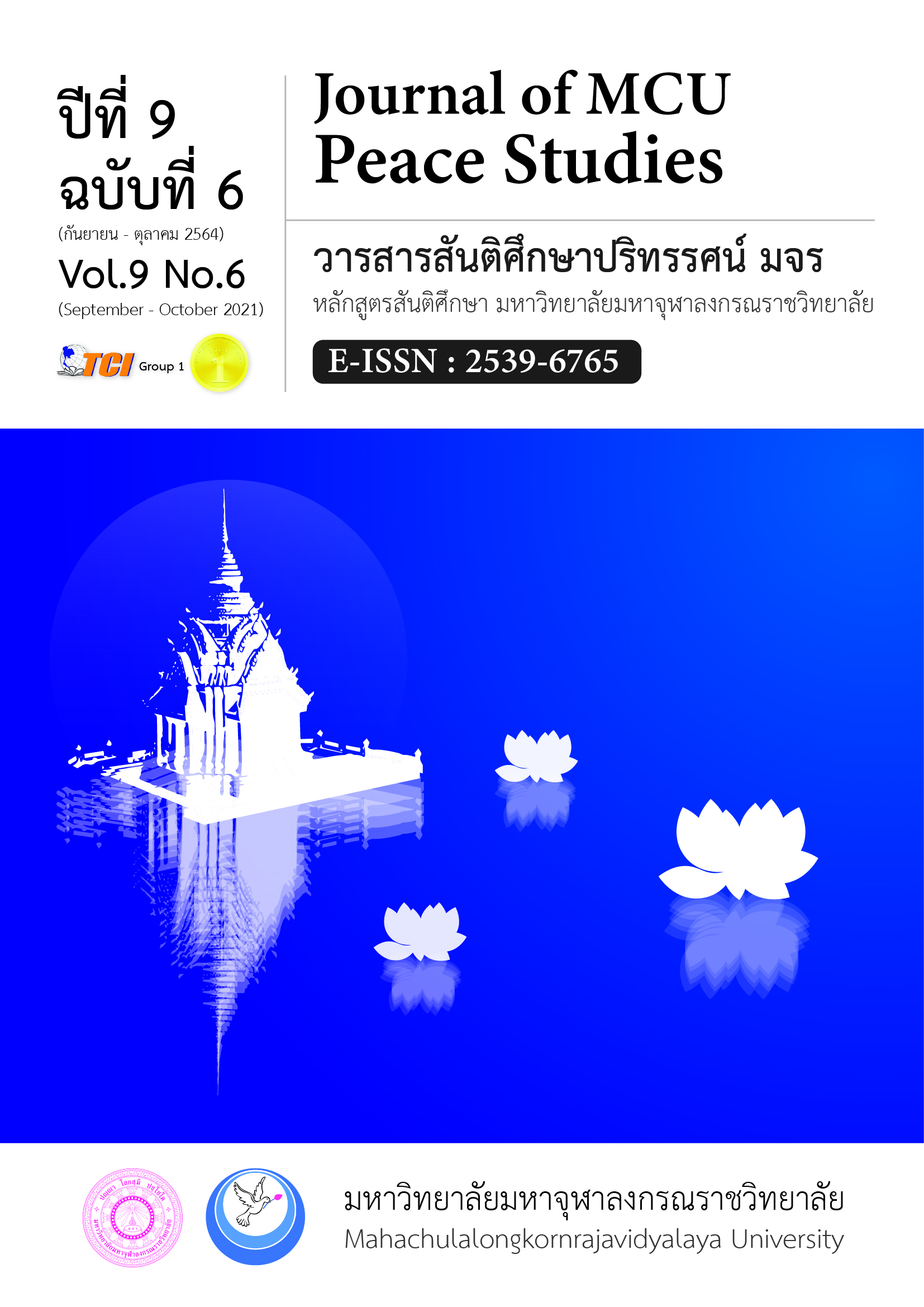Guidelines for Effective Development of Knowledge Management among Personnel at TOT Public Company Limited
Main Article Content
บทคัดย่อ
The objectives of this research article were to 1) study the current and desirable conditions for knowledge management among personnel, and 2) propose guidelines for effective development of knowledge management among personnel at TOT Public Company Limited. The study was implemented in the form of mixed-method research; samples comprised 376 TOT personnel and 10 people for a focus group discussion. Using analysis by statistical packages. The results of the study were as follows: 1) The study results of the current and desirable conditions of personnel’s effective knowledge management under TOT in all aspects were at a high level; 2) Guidelines for effective knowledge management of personnel under the TOT consisted of 7 areas. These areas included 1) knowledge definition with very vital guidelines, 2) creating and seeking knowledge, 3) organizing knowledge systematically, 4) processing and filtering knowledge, 5) accessing knowledge, 6) sharing and exchanging knowledge, and 7) learning and applying knowledge. These elements will cause a change in the management of people with tacit knowledge, transferring as much knowledge as possible to create the most knowledge and benefit to the organization.
Article Details
ทัศนะและความคิดเห็นที่ปรากฏในบทความในวารสาร ถือเป็นความรับผิดชอบของผู้เขียนบทความนั้น และไม่ถือเป็นทัศนะและความรับผิดชอบของกองบรรณาธิการ ยินยอมว่าบทความเป็นลิขสิทธิ์ของวารสาร
เอกสารอ้างอิง
Bureau of Environmental Health. (2017). Operational Guidelines for Individual Personnel Development Plan. Bangkok: Strategy and Planning Division: Bureau of Environmental Health Press.
Krejcie, R. V., & Morgan, D. W. (1970). Determining Sample Size for Research Activities. Educational and Psychological Measurement, 30(3), 607-610.
Kucza, T. (2001). Knowledge management process model. Retrieved February 20, 2012, from http://www.inf.vtt.fi/pdf/publication/2001/p455.pdf.
Marquardt, J. (2002). Building the Learning Organization: A Systems Approach to Quantum Improvement and Global Success. New York: McGraw-Hill.
Nanoka, I., & Takeuchi, H. (1995). The Knowledge–Creating Company: How Japanese Create the Dynamics of innovation. New York: Oxford University Press.
Panich, W. (2005). Knowledge management and Thai government administration. Bangkok: Knowledge Management Institution.
Phakmai, S. (2007). Knowledge management in schools under the Sakaeo Primary Educational Service Area Office 2. (Master’s Thesis). Burapha University. Chonburi.
Phonphai, P. (2001). Knowledge management: Concept and Case studies. Bangkok: Chulalongkorn University.
Probst, G., Raub, S., & Romgardt, K. (2000). Managing Knowledge: Building Blocks for Success. Chichester: John Wiley & Sons.
Tannenbaum, S. (1997). Enhancing continuous learning: Diagnostic findings from multiple companies. Human Resource Management. 36(4), 437-452.
Wichan, B. (2007). Knowledge management to practical intelligence. Bangkok: Tankamol Press Limited Partnership.
Wongprasert, C. (2005). Introduction to information management. Bangkok: Tankamol Press Limited Partnership.


